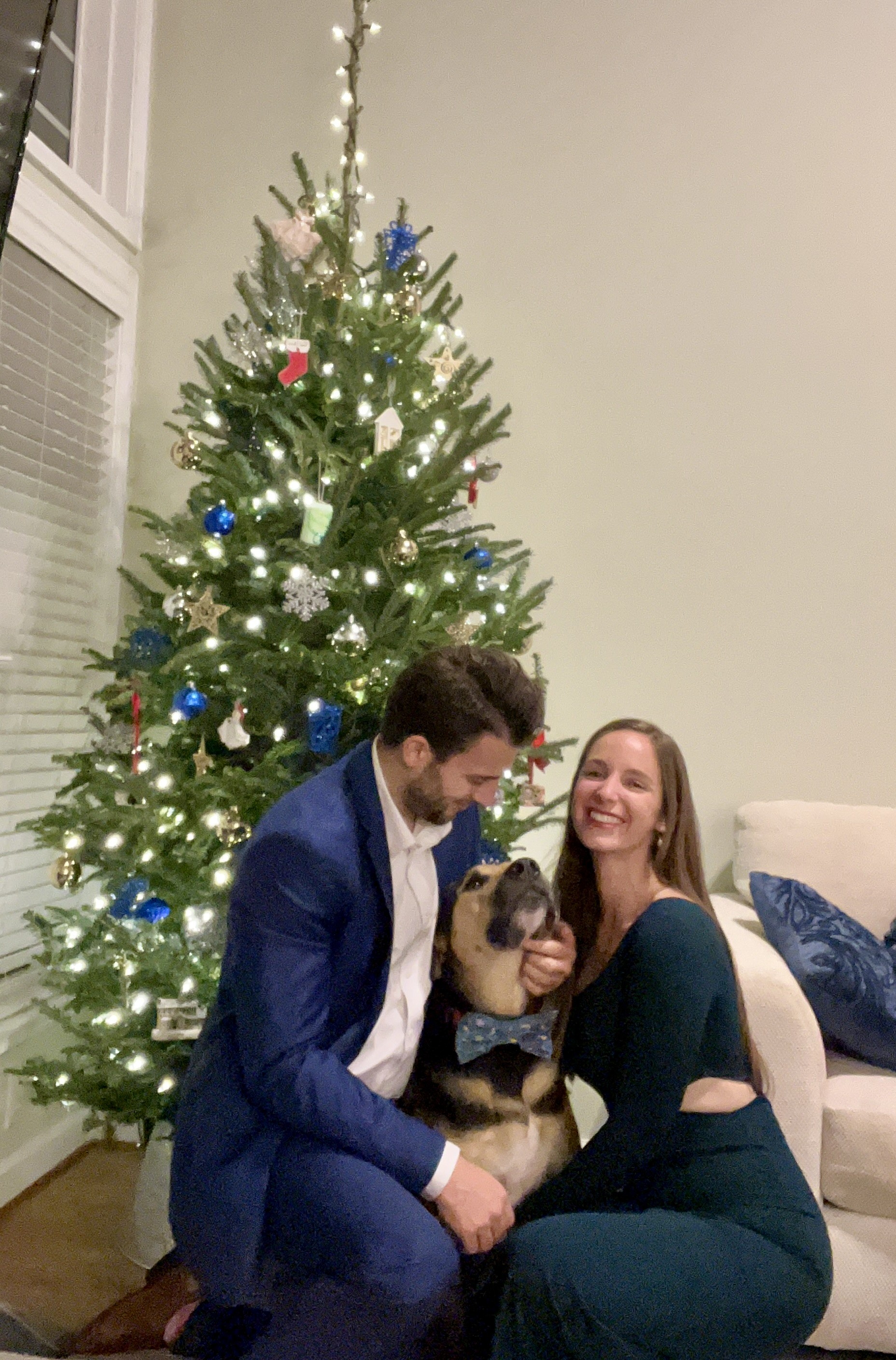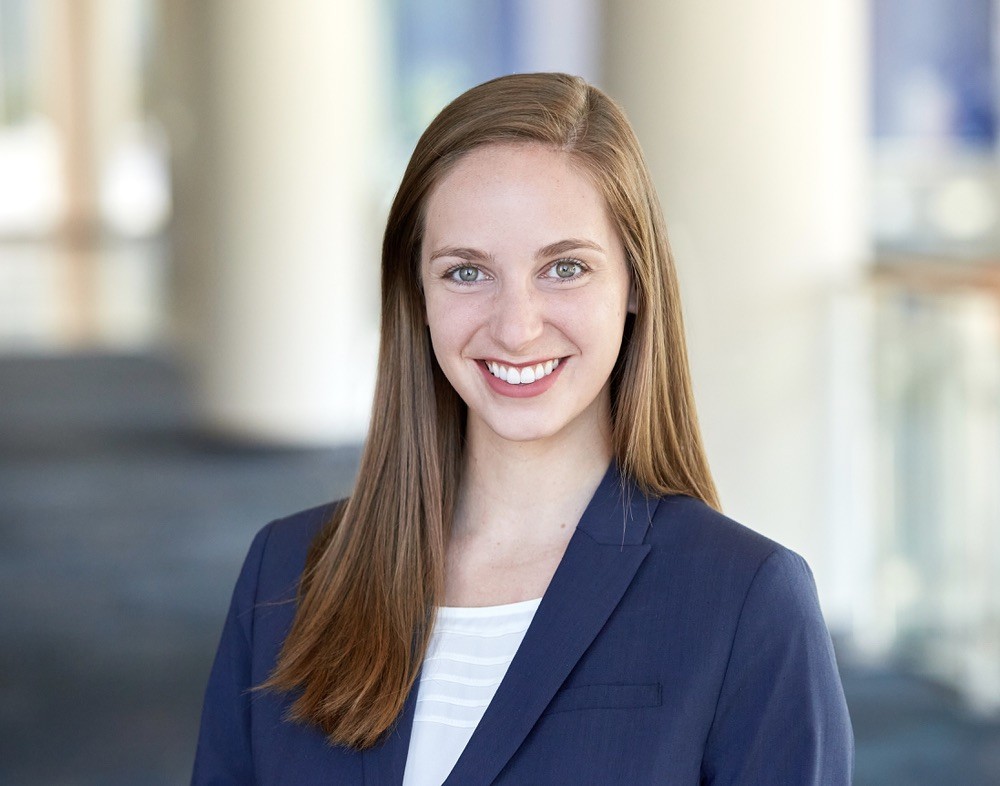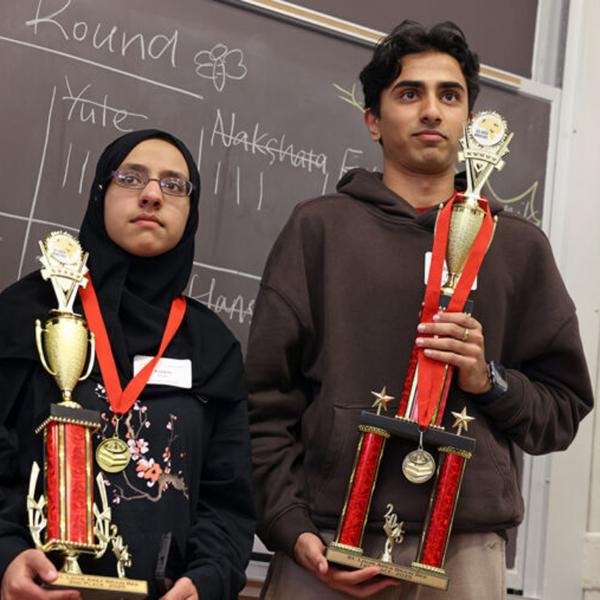Courtney Richman AB ‘17 is interested in everything—the Spanish language, classic and modern literature, patient care, research, and, of course, biology. “I like everything,” Richman told me during a conversation this fall. “I like getting to learn about everything.” This curiosity and desire to gather as much information as possible has guided her through every stage of her career, from her time in the WashU Biology Department to her current work as a medical resident at Duke.
Richman came into WashU knowing she would be premed, but there was one class that stood out among the rest—Cell Biology with Ram Dixit. “That course was so pivotal for me,” Richman said. “It highlighted a lot of areas of my own interest and the ways in which my brain likes to work.” And one of those ways was teaching—Richman was a TA for Cell Biology for two years.
She was the obvious choice for Dixit, who told me it was a pleasure having her in the class. “She was one of the best students that year,” he said, adding how excited he was when she accepted his offer to TA. “It was amazing to witness her passion to help students succeed in this course.”
“I remember calling my mom after those TA office hours on the walk back to my apartment,” Richman reminisced. “I was so excited about how much fun it had been to share some knowledge, watch the students pick up on things and see them have that light bulb moment.”
Cell Biology was a light bulb moment for Richman too, not only for her understanding of science, but for her future as a physician. “I had some experiences with not just being in the learner’s seat but getting to share knowledge and encourage my peers to keep trucking through some pretty dense material,” she said. It was an ability that would come in handy as a physician working with patients, but before all that, Richman had to step outside of the classroom.
She asked herself, “What’s the next step?” There was the question of what would look good on a med school application, but now there were bigger things on Richman’s mind: “I felt like my eyes had been open to so much academically. I wanted to get past ‘What did we learn in the book’ to ‘Why do we know it?’”
This curiosity led her to David Piston’s lab where she worked on paracrine signaling within pancreatic islet cells and the implications of cellular communication on disease states like diabetes. Richman admitted that it was something she never would have envisioned for herself before coming to WashU, but it ended up being exactly what she was
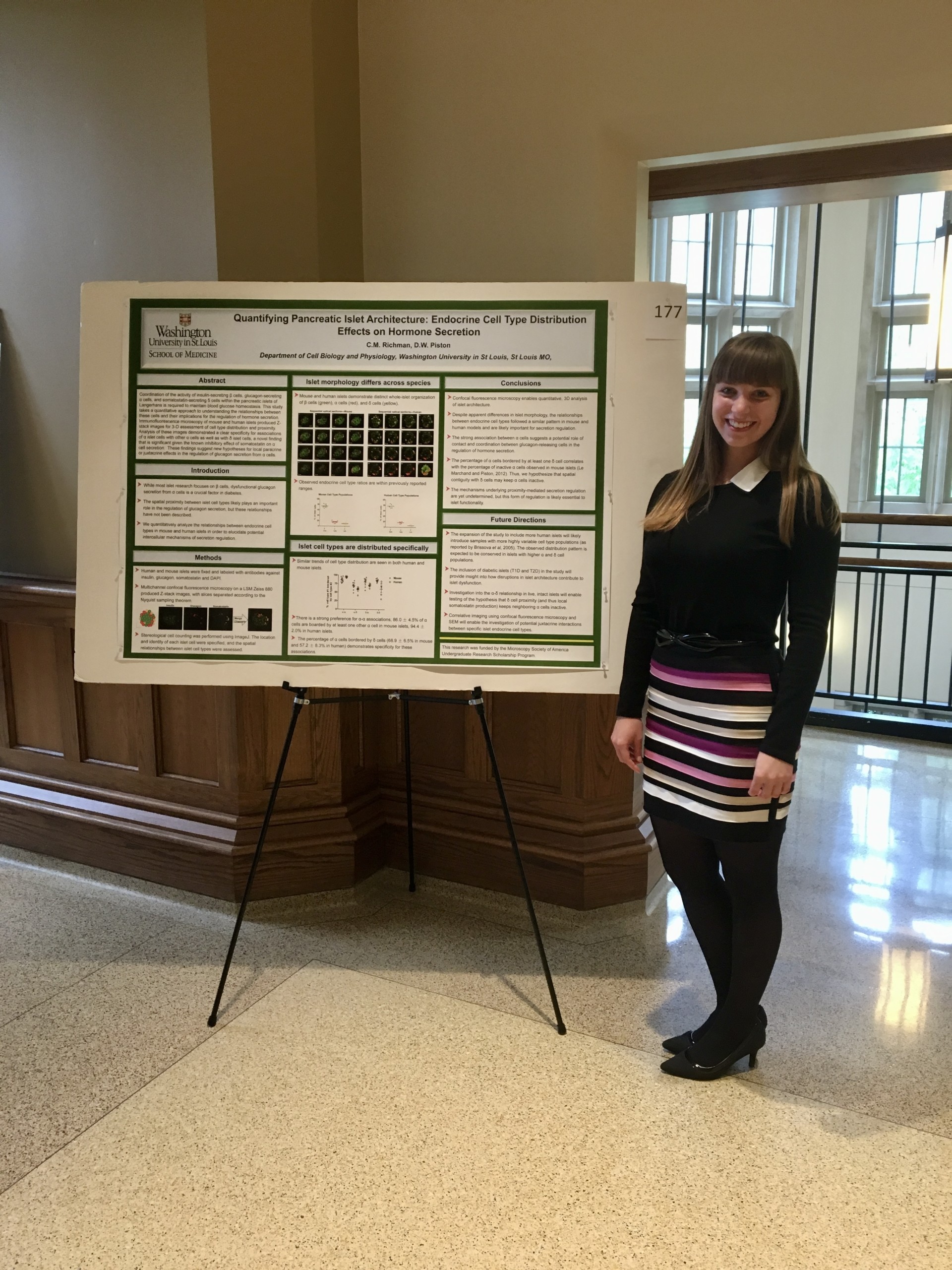
looking for. “There was a great cast of characters in that lab, people from all over the world with different research backgrounds,” she told me. “They were so welcoming and encouraging. Always ready to help me and teach me.”
Unsurprisingly, what Richman learned was useful long after her time in the lab. The “eclectic skills” (as Richman herself describes them) helped her as she moved through med school, putting the pieces together about how the body works, and then in pharmacology, where she focused on what kind of cellular targets certain medications can treat. Even the more niche skills came in handy, like when she made a surprising return to animal research and studying pancreatic cells during her third year at med school, this time focusing on the exocrine pancreas and risk factors for developing pancreatitis. “It was an interesting skill to bring back out again,” Richman said. “Fortunately, I was prepared very well in many ways.”
But Richman’s lab work and TA hours were only one part of her undergraduate life, and she had a laundry list of things she wanted to learn.
“I came to WashU and was absolutely blown away by all of the expertise on so many different things,” Richman said. “I tried to be very broad in my undertakings.” For Richman that meant taking courses all over campus, everything from history to sociology. It’s hard not to derail our conversation and ask about each one of these classes, but there are other things we need to cover, like Richman’s time with the Gephardt Institute. Volunteering at blood drives and leading spring break service trips solidified Richman’s interest in community-based work: “While I was doing all the heavy academics, the Gephardt Institute satisfied my desire to work towards advancing our society and improving the lives of the people around us.”
Richman graduated with a double major in biology and Spanish and a minor in psychological and brain sciences. When I asked about the people who had the most impact on her, she immediately mentioned Ignacio Infante, her Spanish thesis advisor. “He’s an incredible teacher and an incredible person,” Richman told me. Much of her love of Spanish culture, as well as the language skills she still uses with Spanish speaking patients today, can be traced back to him.
Infante described Richman as “simply stellar.” He told me about her honors thesis, a project that focused on the work of Federico García Lorca and Antoni Tàpies. “Courtney’s project was an impressively researched thesis of the highest level,” Infante said. “It was really wonderful to be able to mentor and support the work of such an accomplished student.”
“I got my tuition’s worth,” Richman joked, referring to her time at WashU. “It was an incredible period of having my mind open to different ways of thinking, learning, investigating…I think the cognitive flexibility that it created, as well as the foundation of critical thinking, has been so helpful for navigating these next chapters.”
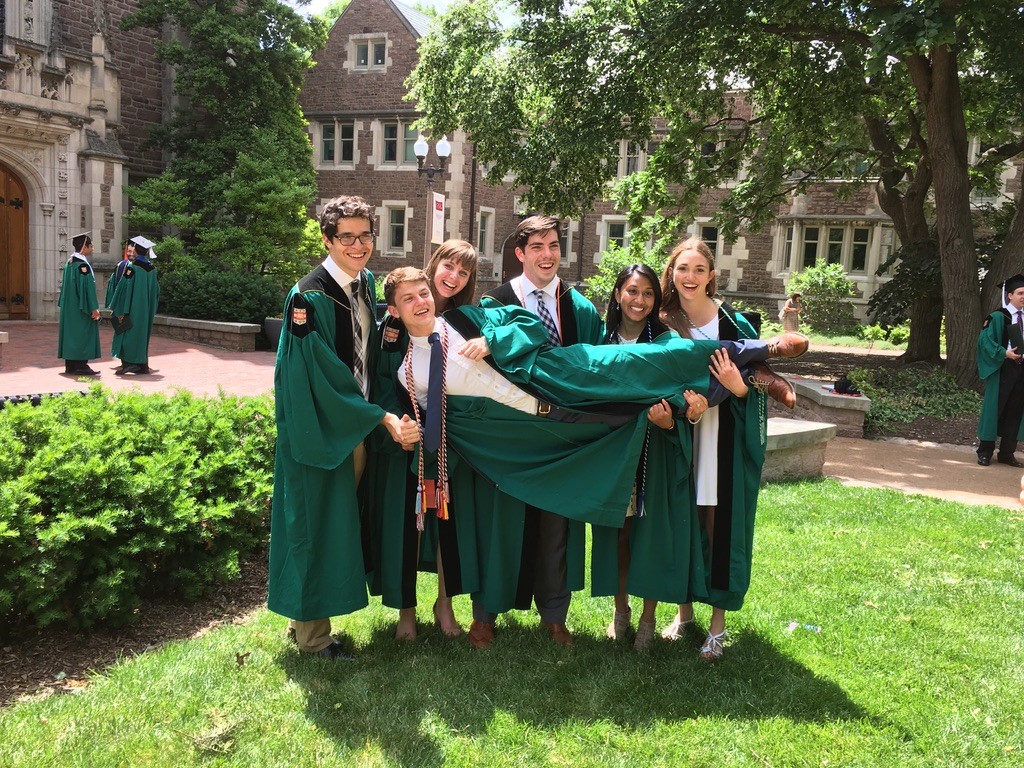
After completing med school at Duke, Richman decided to stay in Durham, North Carolina for her residency. The choice made sense for Richman—she was able to use the community she had built there to hit the ground running. “I felt a little bit more empowered to leverage my knowledge of the system to take the best care of my patients,” she said.
At Duke, Richman is an internal medicine-pediatrics (aka med-peds) resident, a field that specializes in transitional age populations, like teenagers who were diagnosed with childhood onset conditions but are now shifting into adult care. Instead of being whisked from one case to another, Richman gets to spend more time with her patients, figuring out long-term care plans. “I love having big goals of care conversations and opportunities to educate patients and families,” she told me. That’s no surprise; Med-peds is where many of Richman’s interests—medicine, community, patient-focused care—overlap. Her love of teaching also plays a vital role:
“There’s a huge responsibility to empower your patients with the knowledge to continue their care outside of the hospital,” Richman explained. She recognizes the need to be a teacher, not just in academic settings, but in the moments with patients and their families. “WashU definitely instilled that ‘knowledge is power’ mentality in me, and that’s what I hope to share with my patients.”
Talking with Richman is a glimpse into the rewards of being a lifelong learner, for both yourself and those around you. “There isn’t a day in my work that I don’t learn something,” Richman said. “I think that will continue for my entire career, which is amazing.”
